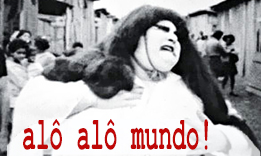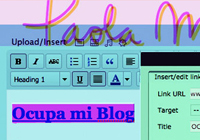El pasado mes de Abril, el IETM organizó el encuentro primaveral en Estocolmo, cuyo título era Whose story is it?. Era la primera vez que acudía a un encuentro internacional de este tipo. Fui con las expectativas altas y realmente fue mucho mejor de lo que esperaba.
Además de las visitas a centros de creación y la programación artística, la organización presentó un programa de actividades (talleres, sesiones de presentación de proyectos, conferencias, grupos de trabajo) muy interesante. Como speaker participé en un working group, The independent story: living and working as an independent in the field of cultural management. Quería compartir el documento que se ha publicado, con las conclusiones finales.
IETM PLENARY MEETING STOCKHOLM
Report
WG3: The Independent Story: Living and Working
as an Independent in the Field of Cultural
Management
Friday, 18 April, 2011 in Norra Latin, Stockholm
Report by Brina Stinehelfer
………………………………..
Moderators: Brina Stinehelfer and Francesca Romana Ciardi
Speakers: Kris Nelson (Canada), Pelin Basaran (Turkey),
Stephen Slater (UK), and international independent team Paola
Ricart (Spain) & Sara O’Donnel (UK).
An impressive number of members (62) met at Nora Latin on
Friday afternoon for this working group for independents working
in the field of cultural management. The attendees were very
diverse geographically, as well as well as in their ways of
managing, their stories as to how they came to be where they
are, and how they create/define their work as independents.
However, they had one thing in common- all were very engaged
and passionate about sharing their experiences, and hungry for
hearing the experiences and advice of others.
The workshop moderators, Brina Stinehelfer and Francesca
Romana Ciardi from Berlin began with a mini brainstorm session
in which members were asked to write down something they
wanted to share, and something they wanted to know more
about from their colleges. The second question had many more
responses than the first.
There were short introductions by speakers Kris Nelson
(Canada), Pelin Basaran (Turkey), Stephen Slater (UK), and
international independent team Paola Ricart (Spain) & Sara
O’Donnel (UK) to get the ball rolling. Then the working group
went off, with excited conversation and simultaneous note taking
from the moderator which was projected on a screen, as an
ongoing sampling of the conversation that all could follow.
Many people were interested in standards of pay and work for
independents which were in place, and it was determined that
nearly every country does indeed have a national set standard of
pay, which managers and producers should receive. However,
the governmental organizations which assure that these
standards are met or provides the funding to do so, are rare or nonexistent.
The topic of why to work independently, and the benefits and
freedoms of working outside a supported structure was also
discussed at length. It was determined that not every
independent is actually independent by choice, but that working
this way does provide a noticeable level of freedom in choosing
projects and ways of working. However along with this freedom
comes great challenges and responsibility.
The main challenge, of course, is financial. Many members were
hungry for tips and experiences- answers to the question of how
one can support oneself through working independently. Some
shared their techniques of creating legal entities for themselves
as independents, to be eligible for the same funding and tax
breaks allowed to larger cultural institutions. Several spoke of
having side jobs as a way to provide supplemental income. The
problem, however, seemed universal- the artists we work for can
not afford to pay us enough to survive, the organizations with
which we work with (such as venues and festivals) are not
structured to pay our wages, and there is not enough
governmental funding opportunities for sustaining independent
managers. Funding to pay us is usually available on a project to
project basis, if at all. So how do we survive in between?
The question of responsibility of being an independent, has, of
course, to do with artistic integrity. Independents often have
more freedom to choose which projects and artists they support
than national funding organizations which have stricter guidelines
about what they can and cannot support. So the question is, how
we can balance being true to our artistic interests and earning
enough money to survive? Several encouraged thinking as an
entrepreneur- setting up long term relationships with other
entities which have the ability to support, and finding the localcultural need/interest and filling it. But it is a delicate balance to maintain.
The issue of a different kind of balance also came up again and
again: the balance between the personal and professional.
Many admitted that there is no separation between their personal
and professional space/money/time at all. Many work from
home, and draw from the same account to pay for administrative
costs for a project they are managing, and to buy food for their
own cooking at home. How can independents, who have no 9-5
working hours and use the living room as office and
headquarters, find a healthy separation between work and
personal? The recommendation from one independent:
“Sometimes you just have to say “No” and turn off that
computer”.
This working group, as many often do, seemed far too short for
the large and diverse topics which it brought up. The question of
if/how independents can support each other more came up
several times, and hung in the air waiting for an initiative to grab
it. It is clear that the number of independents which make up the
IETM family is constantly rapidly growing, and new initiatives
should be taken to fulfill these interests and needs. I look
forward to seeing what may develop by the continued coming
together of interested and passionate independents.


